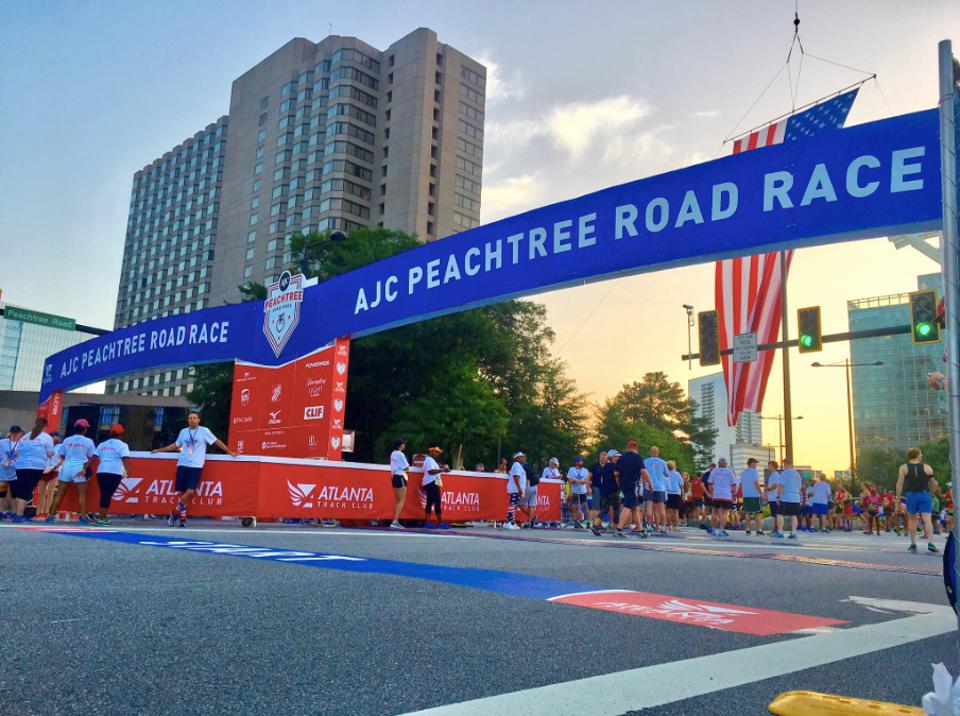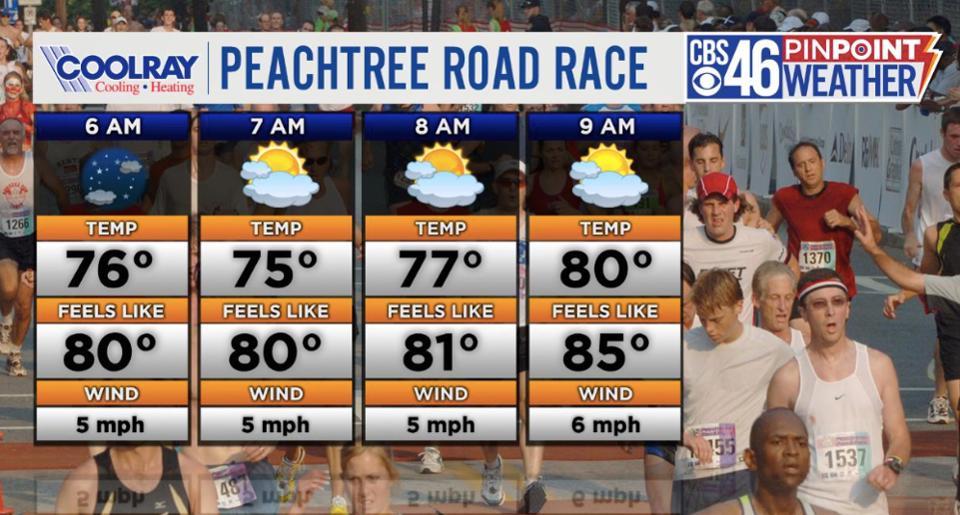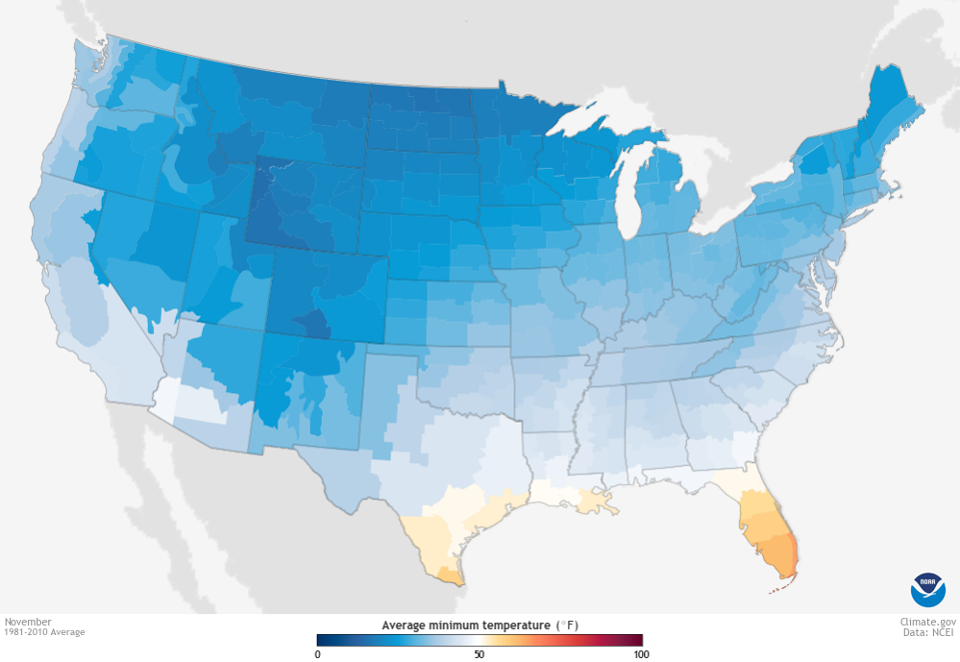Coronavirus continues to reshape everything that is familiar to us. This morning I learned that Atlanta’s iconic Peachtree Road Race has been moved to Thanksgiving Day because of COVID-19. Atlantans (native or transplants) know that the Peachtree Road Race, since 1970, is as synonymous with the 4th of July as fireworks. The road race joins another iconic sporting event, The Masters golf tournament, in moving to November because of the historic pandemic. As you can imagine, the weather is quite different in Atlanta during late November. Here is how the weather will be different?

The Peachtree Road Race is considered to be world’s largest 10-kilometer race. According to sources, approximately 60,000 runners participated in 2019. The race is very much a sports competition, but it has also become an annual summer ritual for amateur and professional runners. Every year I see friends proudly posting their registration credentials for a coveted spot in the race. The Atlanta Track Club posted the following message on its website this week: “Consistent with guidance we will receive from health experts in the fall, the 51st Running of the AJC Peachtree Road Race will take place on November 26, 2020.”

Terri Smith is a long-time meteorologist with The Weather Channel. Her post on social media sums up my initial thoughts as well, “Is it really the Peachtree without heat and humidity: Average low July 4th: 71.1 deg Average low Nov 26th: 41.2 deg.” Smith received the temperature data from Weather Channel colleague Jessica Arnoldy. The start times for the race are typically in waves ranging from about 6:25 am to 8:40 am according to WABE. Though the summer solstice (in June) represents the peak in receipt of energy from the sun, July is often the hottest month in Atlanta. The day before the 2019 race, CBS 46 Atlanta Chief Meteorologist Jennifer Valdez tweeted the forecast below and cautioned that it was going to be one of the hottest starts to the race on record. With humidity, temperatures felt like the low to mid eighties during the race.

Terri Smith is a long-time meteorologist with The Weather Channel. Her post on social media sums up my initial thoughts as well, “Is it really the Peachtree without heat and humidity: Average low July 4th: 71.1 deg Average low Nov 26th: 41.2 deg.” Smith received the temperature data from Weather Channel colleague Jessica Arnoldy. The start times for the race are typically in waves ranging from about 6:25 am to 8:40 am according to WABE. Though the summer solstice (in June) represents the peak in receipt of energy from the sun, July is often the hottest month in Atlanta. The day before the 2019 race, CBS 46 Atlanta Chief Meteorologist Jennifer Valdez tweeted the forecast below and cautioned that it was going to be one of the hottest starts to the race on record. With humidity, temperatures felt like the low to mid eighties during the race.

Weather conditions affect performance so it will be interesting to see how running times from the Thanksgiving race compare to previous years. Here are some ways, according to the Active.com website, that weather affects running performance:
- Temperature: running pace is adversely affected as temperatures increase. The website notes that an increase in temperature from 60 degrees F to 80 degrees F can increase a mile pace by 12 to 15%.
- Humidity: higher humidity increases heart rate significantly, and hydration is even more critical.
Family friend Tasha Allen is the Director of Accounting and Human Resources at the Georgia Chamber of Commerce. She has run the Peachtree Road Race and told me, “The heat was always a problem for me….since I am not a real runner I would never receive an early wave time making my start time closer to 8am, and it’s usually 80-85 degrees by then.” At such a late start time, the temperatures are approaching or exceeding 90 degrees F by the end of the race for some runners. Allen went on to say, “Having the race on Thanksgiving hopefully will eliminate the heat issue. BUT this is Georgia and we could still have an unusual hot day on Thanksgiving (smile).”
I will put on my “meteorologist and Director of University of Georgia Atmospheric Sciences program” hat and point out an additional weather factor that Thanksgiving introduces, a somewhat greater possibility of rainfall than in July. November is a weather transition period for the state of Georgia. The jet stream is starting to return to the region and frontal systems are more active. During July, frontal activity is minimal, and the main threat of rainfall is from pop-up afternoon storms.
